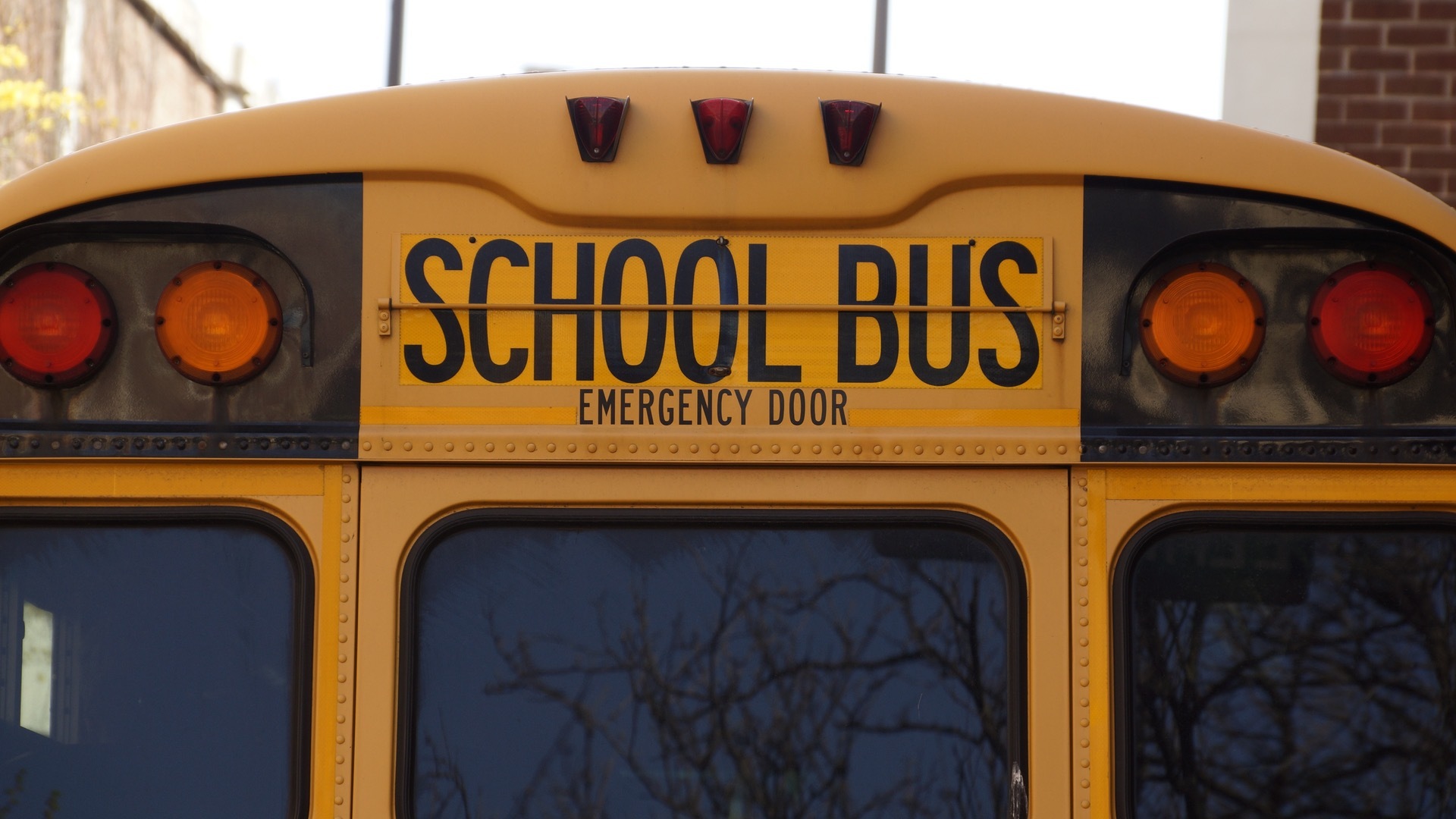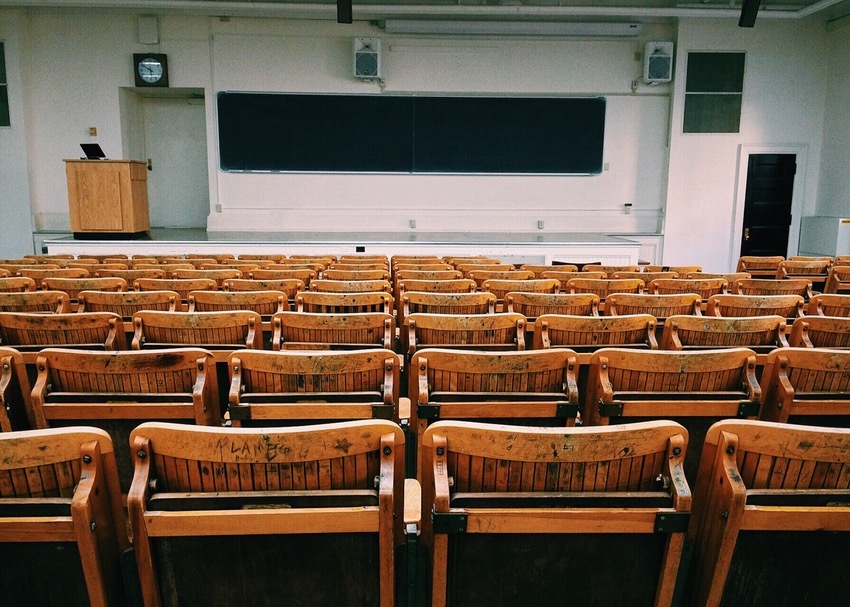False Objectivity, Real Consequences
“Our children need to be able to compete” they say. “We’re losing ground to Singapore and Finland,” they say. “Children from disadvantaged backgrounds won’t be able to get jobs in the new economy,” they say. American educational policy makers on both sides of the aisle cite international competitiveness as the motivation behind their policy initiatives so often that testing has become the very wallpaper of our national discourse on education, ever present yet almost never critically evaluated.
But the wallpaper is ugly. International comparison tests routinely put America in embarrassing rankings, especially given how much we spend on education. However, etched into the wallpaper of our competitive discourse is prescient graffiti that tells anyone willing to look close enough we do not have an education problem at all. Rather, it is deep-seeded social inequality that drives and perpetuates educational underperformance.
In fact, more complex analyses of test data show that some Americans do just fine: students from affluent schools are international superstars, whereas the scores of students from under-resourced schools compare more closely to countries that most Americans would hardly consider to be peers. National analyses of test data bear this pattern of high achievement for affluent, often White, students out as well, in stark contrast to their low-income, racially minoritized counterparts. The term “minoritized” is appropriate because children of color and children receiving free or reduced-price lunch are the majority of public school students, but are still treated as “minorities” because of the particular ways in which issues of inequality, especially around race, play out for them.
In response to our anxieties about underperforming schools, policies around the country have sought to incentivize better performance by punishing poor performers under the banner of accountability. While there is no valid argument against ensuring that educators are answerable to the communities they serve, our current accountability system does a remarkably poor job of achieving that end. In various ways across the nation, a cascade of negative incentives descends from the federal government through states and municipalities, and into classrooms where they ultimately land on the bodies of children who perform poorly on tests. Students who do not do well on tests are all too often referred for special education services, as poor performance on tests is often in-and-of-itself treated as a cause to suspect that those children require special education services.
Those children who are evaluated for special education services are subjected to more tests (albeit of a different sort) in order to identify the things that are broken in them. Children placed in segregated special education settings face very different learning environments than their general education peers, particularly in stricter controls for their behavior and lower expectations for their academic work.
Strikingly, analyses have shown that these restrictive settings are disproportionately more likely to be populated with Black boys. In turn, students in special education face greater likelihoods of incarceration, in what has been called a school-to-prison pipeline. In a perhaps less dire, but equally troubling dynamic, tests that are used to determine college admission put racially minoritized children at a far greater disadvantage when it comes to getting into college.
Lying at the heart of these mechanisms is testing of two types: professional psychometry and corporate pseudopsychometry. Though very different in nature, both rely on problematic assumptions, and both serve to perpetuate inequality.
In the Photo: Students who do not do well on tests are all too often referred for special education services, as poor performance on tests is often in-and-of-itself treated as a cause to suspect that those children require special education services. Photo Credit: Pexels
Professional Psychometry and the Legacy of Scientific Racism
Proper, professional psychometry is practiced by professional evaluators and clinicians concerned with the measurement of human traits. On its face, there is nothing nefarious about this. However, the historical roots of professional psychometry lie in the eugenicist and scientific racism movements. The father of modern psychometry, Francis Galton, was an inspiration to his contemporaries who wanted to apply the natural selection ideas of Charles Darwin to human society. Doing so required justifying social inequality as inevitable consequences of some individuals being more fit to survive than others. Though psychometry has stepped back from the eugenicist aspiration to breed superior people through intervention after World War II, it remains undeniable that the field of modern psychometry was borne out of the same impulses to categorize and sort humans as inferior and superior that lead to the holocaust.
In the United States specifically, psychometry found its niche in “proving” the differences between racial groups, and scientifically undergirding white supremacy. The racially segregated United States of the early 20th century was hungry for theories that justified segregating its Black population and denying them civil rights. Though initially designed to be of service in the World War I era in identifying the qualifications of soldiers, IQ tests satisfied this hunger, and in turn planted the seeds of the testing movement that we see today.
Related article: “HOW EDUCATION IS THE “ROUTE TO” AND “ROOT OF” GENDER EQUALITY”
Ultimately, what professional psychometry suffers from is resistance to the idea that many of our human attributes are inventions of human societies. On a philosophical level, the field rests upon the fundamental assumption that human capacities are objective, concrete attributes to be identified and measured.
This perspective denies the possibility that the idea of intelligence is a cultural value – that what we consider to be intelligence, and who we consider to be intelligent, depends on the cultural context in which we live.
Consider the things that make someone “intelligent” in contemporary American society. Perhaps you would identify proficiency with math, technology, sciences, and having a big vocabulary – things that promote individual economic success in an increasingly globalized economy. Now consider what would constitute intelligence in a hunter-gatherer society. Certainly very different aptitudes would be of value – aptitudes that would contribute to the survival of a larger communal unit. While these are fairly extreme poles, they nevertheless represent tensions that still exist. Thus, there are multiple intelligences, and each is inherently bound to the values of our societies.
What is valued in Mike Pence’s Indiana is very different from what is valued in Chance the Rapper’s Chicago, despite their relative proximity. Despite the infinite permutations that culture and intelligence may interact, even just within the U.S., the single type of intelligence that our tests measure tends to undergird education privileges for the white, middle class and undervalues the cognitive abilities and linguistic resources of minoritized children around the country.
In the Photo: “What we consider to be intelligence, and who we consider to be intelligent, depends on the cultural context in which we live.” Photo Credit: Pexels
To its credit, the field of psychometrics is concerned with developing and refining measures of human capacity that produce consistent results in measuring what is intended. Professional psychometricians will argue that, while tests are imperfect, they are useful tools that help people, and indeed in many cases this is true. To paint the field as consciously harm-causing is to misrepresent the intentions of many committed, ethical professionals. Nevertheless, the fact remains that psychological measurement is complicit in the oppression of racially minoritized groups in tangible and significant ways.
Corporate Pseudopsychometry and its Leased Credibility
Corporate pseudopsychometry shares all of the same troubling historical and philosophical footings, but instead of a focus on ethical standards or creating tools of measurement, it is driven by extraction of profit from the public sector educational dollars, which in turn are used to lobby for an ever-increasing role in the evaluation of public school students.
In the last few years, the sector has seen unprecedented profits and outsized influence in policy decisions.
The ways testing treats academic achievement is fraught with even more subjectivity than the way it does intelligence. Our standardized tests measure narrow proficiency in reading and math, and within that only certain types of reading and math.
Significant shifts in testing that began with the introduction of the widely maligned common core standards, privilege certain types of knowledge over others. In math, our newer tests specifically focus on conceptual understanding of math, not the ability to use math in context. In reading, the focus is on straight comprehension of non-fiction texts which students are likely to be unfamiliar.
Proponents of the new curricula and tests emphasize that these are the skills that are necessary in our new economy. However, because teachers have so often had to seek to avoid punishment under accountability regimes, the curriculum taught to most students only focuses on these skills. This alienates kids with great intelligence in other areas – kids who are good at music or art (probably in part because their communities value those things) are forced to read esoteric texts in which the context is unfamiliar, and are made to do weird mathematical procedures that their parents (regardless of race, in this case) probably cannot explain to them.
Troublingly, “standardized tests” have few of the statistical properties of professional psychometric tools. While the consistent underperformance of children of color on these tests has widely been described as an achievement gap, that explanation ignores the historical and contemporary realities underlying the disparities in test scores, which are rooted in deep racial segregation of school systems, chronic underfunding of schools with large numbers of minoritized children, and the perennial tendency to privilege white middle-class educational values. Therefore, the so-called achievement gap is better framed as an educational debt owed to minoritized children living in under-resourced communities.
In combination with the accountability movement, the cumulative effect of the last fifteen years of educational policy is the redistribution of public sector funds away from the communities and children who need them most and towards corporations who provide the tests that are used to measure their underperformance.
If there are any incentives in this scheme, it is for the tests to continue to show poor results for impoverished communities of color to justify more spending on accountability and continue to paint them as objective measures of student achievement.
Photo Credit: Pexels
As far as the eye can see, this all looks to get worse under President Trump and Secretary of Education Betsy DeVos. Though neither can be described as policy experts, they remain fiercely committed to reforms that would give parents the choice to send their kids to non-public schools at taxpayers’ expense, under the premise that their public schools are hell holes. For many education reformers, this is seen as a good thing for minoritized children, as it is said that they will have the ability to switch to take their children to better performing private, parochial, and charter schools.
Yet there is strong evidence that suggests that such programs would intensify racial segregation of schools, an issue which is by no means in our past. Nonpublic schools have, with a few outstanding exceptions, generally proven unwilling to meet the needs of students with disabilities. Moreover, this proposed shift of resources away from public schools is an existential threat to the very values that democracies are predicated upon, particularly of having an informed electorate.
The case for hope
What type of world could become possible if we stopped pathologizing students and communities who do not conform to white, middle class, suburban America’s standard of “good students” or “good schools”? What if they were allowed to be their own type of good? What if they were given restitution on the educational debt owed to them? Can we even imagine a world where middle class white parents would eagerly send their children to a school full of black students, Spanish speaking students, and students with disabilities? Maybe that’s where we should start.
People of privilege – especially those whose kids do well on standardized tests and are not diagnosed with disabilities – must understand that the testing system hurts the very children who need the most help. This requires acknowledging that the vast majority of tests measure students’ fluency in white cultural norms and are not objective measures at all. Too often, action has waited until affluent, white suburban children start doing poorly on tests to speak up or opt out. Yet, political advocacy efforts are often dominated by parents who need advocacy least.
There are things that people can do, even beyond calling their representatives about over-testing and profiteering – and making good on those calls by showing up to vote. This is especially significant for down-ballot state and municipal politicians who make the vast majority of decisions about education. But the efforts all begin with at least knowing who these representatives are, and who lobbies them. If the confirmation of Betsy DeVos has showed us one thing, it is that money still speaks. We just have to be louder.
Recommended reading: “SOUTH AFRICA HAS ONE OF THE WORLD’S WORST EDUCATION SYSTEMS”













